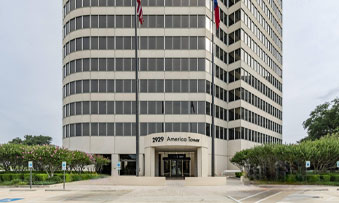Texas Bad Weather Truck Accident Lawyer

Texas Bad Weather Truck Accident Attorney
Have You Been In a Texas Truck Accident Caused by Bad Weather?
Truck drivers are responsible for delivering many of the items we use, and eat, every day. To ensure that supply is meeting demand, truck drivers are expected to make their deliveries on time, even when the weather is poor. Inclement weather often leads to accidents, and when one of the vehicles involved in the accident is a large truck, the results can be disastrous. If you are injured in a truck accident, contact our Texas bad weather truck accident lawyers at the Merritt & Merritt Law Firm. Call us now at (713) 535-7051.
Common Types of Inclement Weather
Some of the most common types of weather that have a negative effect on driving conditions are listed below. When you are involved in an accident with a truck, and you feel the weather played a role in what happened, reach out to the Texas bad weather truck accident lawyers at the Merritt & Merritt Law Firm.
High Winds
High winds and large trucks are not a good mix, for several reasons. Large trucks have a significant amount of surface area, and high winds can cause the truck, as well as the attached trailer, to move. While this is never good and can easily cause the truck driver to lose control of the vehicle, it is even worse when the trailer is empty. With less weight, the whole vehicle is more prone to flipping or jackknifing.
Fog & Smoke
Fog and smoke can both create serious issues with visibility. It is obvious that a large truck, moving swiftly, with a driver that cannot see very far is a recipe for disaster. Truckers should slow down, use their fog lights, and activate their 4 way flashers when the fog is thick.
It is important to note that fog, and smoke, can form quickly and visibility can be reduced significantly in a short period of time. This is another reason that professional truck drivers should be constantly aware of their surroundings.
Wet Pavement
Wet pavement is often overlooked as a danger, especially when it is not actively raining. However, a wet road is often a slick road, as precipitation mixes with oils and other elements on the road to cause a slippery surface. Wet roads can also affect a truck’s braking system, essentially making it difficult to come to a complete stop quickly.
Hydroplaning is another danger of wet roads, particularly when there is standing water on the road surface. Hydroplaning is when a vehicle begins to slide across a road and the driver is unable to control the vehicle. When that vehicle is a large truck, the results of an out-of-control vehicle can be disastrous.
Snow & Ice
Snow and ice can cause issues with visibility, greatly reducing a truck driver’s ability to see out the windshield and the mirrors. On top of this, snow and ice can prevent the tires on large trucks from getting the traction that is essential for the driver to be able to maintain control over the vehicle.
Rain & Other Precipitation
Rain can cause problems for the truck and the truck driver. For the truck driver, rain decreases visibility and leads to problems with being able to control the truck. Rain can also reduce traction, and wet brakes increase the probability of brake failure. Jackknifes, rear-end collisions, and sideswipes are accidents that our Texas bad weather truck accident lawyers have seen result from rain and other precipitation.
Extreme Temperatures
Extreme temperatures can also create bad driving conditions for truck drivers. When the temperature increases, it is likely that mechanical issues with the truck will increase as well. This is because hot weather can cause problems, such as tires becoming overheated, which leads to blow outs. A tire being blown out generally causes a loss of control.
Extreme cold can have detrimental effects on trucks as well. One of the most common ways is by causing ice to form in the air lines for the brake system. It can also cause different parts of the vehicle, especially those made of metal, to become more fragile and prone to breakage.
How To Prevent Truck Accidents Caused By Weather Conditions
There are steps that can be taken by truck drivers, as well as drivers of other vehicles, to prevent an accident from occurring when the weather is bad. Our Texas bad weather truck accident lawyers offer the following tips.
Slow Down
Slowing down is one the easiest and most effective ways for any driver to prevent an accident when the weather is bad. The Federal Motor Carrier Safety Commission (FMCSA) actually recommends reducing speed by ⅓ on wet roads and by ½ or more on snow packed roads.
Turn On the Lights
Bad weather conditions often compromise a truck driver’s ability to see other vehicles, as well as prevents other drivers from seeing the truck. Because of this, it is always advised to turn on headlights when the weather has any negative effect on visibility. Of course, when the weather is foggy, dim lights are usually much better than lights on high beams.
Drive Defensively
Defensive driving mainly refers to the practice of driving in a way that uses strategy to help motorists remain safe and able to identify and react to potential hazards. Experienced drivers should use these skills to keep themselves, and others, safe during inclement weather.
Pull over
Sometimes, the best way to prevent an accident in bad weather is to pull over to a safe spot and wait out the conditions.
Consult With Premier Texas Bad Weather Truck Accident Lawyers
The weather plays a huge role in causing accidents on our roadways. When you have been injured in a truck accident, you do not have to figure out how to recover the amount you are owed on your own. Contact our Texas bad weather truck accident lawyers at the Merritt & Merritt Law Firm. We are here to help, and you can reach us by calling (713) 535-7051 or via our contact page.






